
It’s the life-changing event that no one can ever prepare for. The news that no one wants to ever receive. How could the person who gave you life no longer be alive? It doesn’t make sense. There must be a mistake. Maybe they’re just sleeping? It can’t be. You lose your breath.
Can’t believe. Can’t breathe. Won’t believe. Must breathe...
Your chest hurts so bad you feel like someone has mercilessly ripped your heart out. The pain is paralyzing. No…no…no. Suddenly everything is a blur. Just shapes everywhere. All colors disappear.
“They are gone.” You can barely utter the words. And the moment the words fall out of your mouth, you feel like you are stuck in a never ending nightmare. Is this real? What is real anymore?
You don’t know what to do and your friends don’t know what to do. However, this is the time when you need care and support the most.
First Aid For You ❤
Hang in there, because care is on the way. I too, have experienced deep loss and want to share what I’ve learned with you. If you’ve just lost a parent, then this article for you. If your friend lost a parent, then this is for you too.
Think of it as a first aid manual for firsts — the first days, the first week and the first month of grief. It’ll be in two parts:
Part 1: What To Do If You’ve Lost a Parent
Part 2: What To Do If Your Friend Lost a Parent
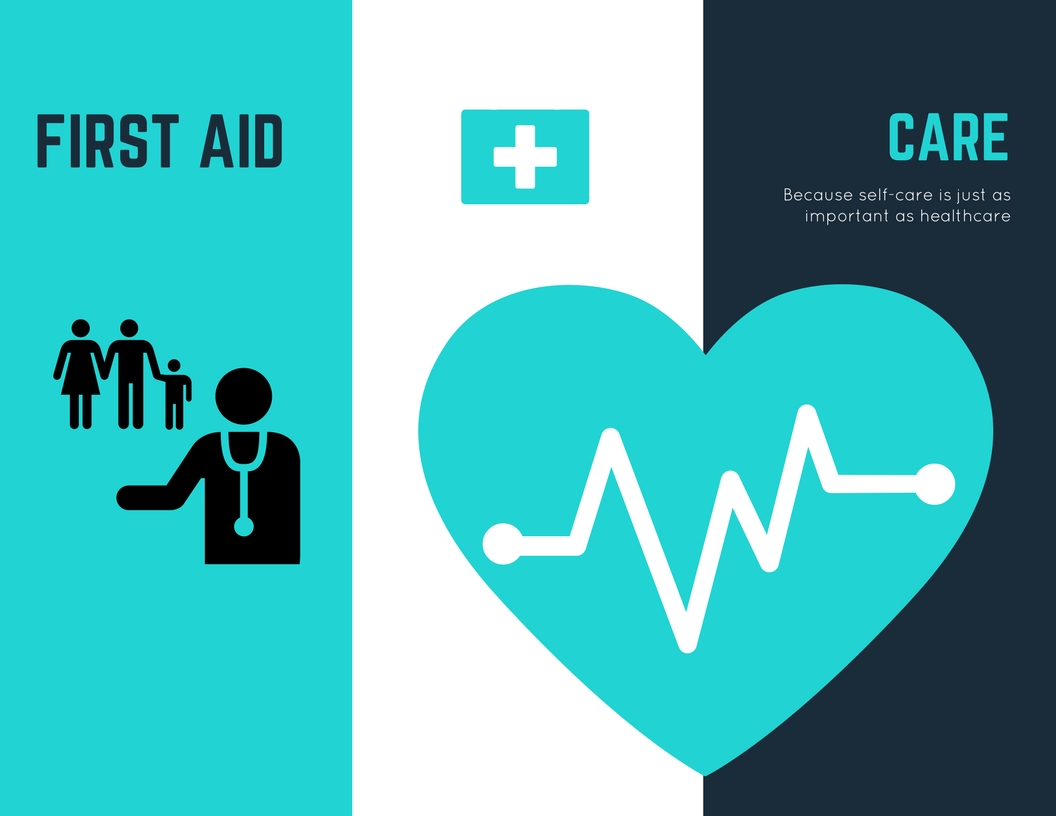
Why?
Because there aren’t enough resources out there for those who have just lost a parent. Death is still a taboo topic in many parts of the world, so dealing with it can be an isolating experience. But trust me, you’re not alone.
Unfortunately I know first-hand what it feels like to be lost after loss. I know it all too well because I’ve already lost both of my parents.
In 2010 when I was only 26, my dad took his last breath. We had spent holidays and family birthdays in hospitals for nearly a year. It was awful. He couldn’t even breathe on his own anymore and I will never forget the sounds of the machines that kept him going. Beep. Beep. Beep.
Thanksgiving was our favorite holiday and my dad used to make the juiciest turkey each year. Then suddenly there we were, “celebrating” Thanksgiving huddled around his hospital bed, eating microwaved turkey and mashed potatoes out of tupperware. That was our last Thanksgiving together.
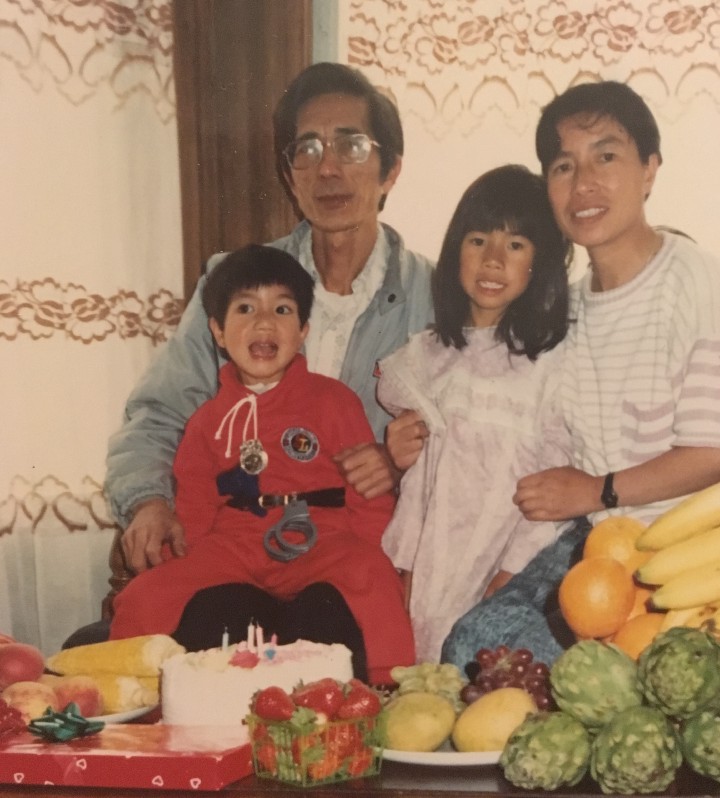
Then last year the unthinkable happened — I lost my mom too.
It nearly broke me. She was my superhero and somehow I had imagined that she would live forever. Sure, she had lymphoma but we all thought she still had many years ahead. Just a month prior, she was happily playing badminton and singing opera. We had even gone to China together to visit her childhood friends and family. Looking back, it wasn’t a sightseeing trip for her. It was a farewell tour. She must’ve known. F*cking cancer.
Life is so unfair. I wasn’t supposed to lose both parents by my early 30s. I barely knew anyone who had suffered such loss so I didn’t know where to turn. As a former DNA scientist who researched cancer and disease, I had studied death in theory but couldn’t believe that it could hit so close to home. My mom and dad — both gone. Too damn soon. I would’ve given anything for just one more day. Just to see a smile again. To hear a voice.
Losing my parents brought dark and devastating times but somehow I survived. I believe that learning how to self-care and relying on my network of loving friends was the path to brighter days.
In the past few months, four of my friends have lost a parent. Four. That’s too many. Now more than ever I feel a sense of urgency to share some advice on dealing with the loss of a parent. Each loss is unique so we each process in our own way. However, I’d like to share with you what I’ve learned, in the hopes that it could send a few hearts on the way to healing.
Part 1: What To Do If You’ve Lost a Parent:
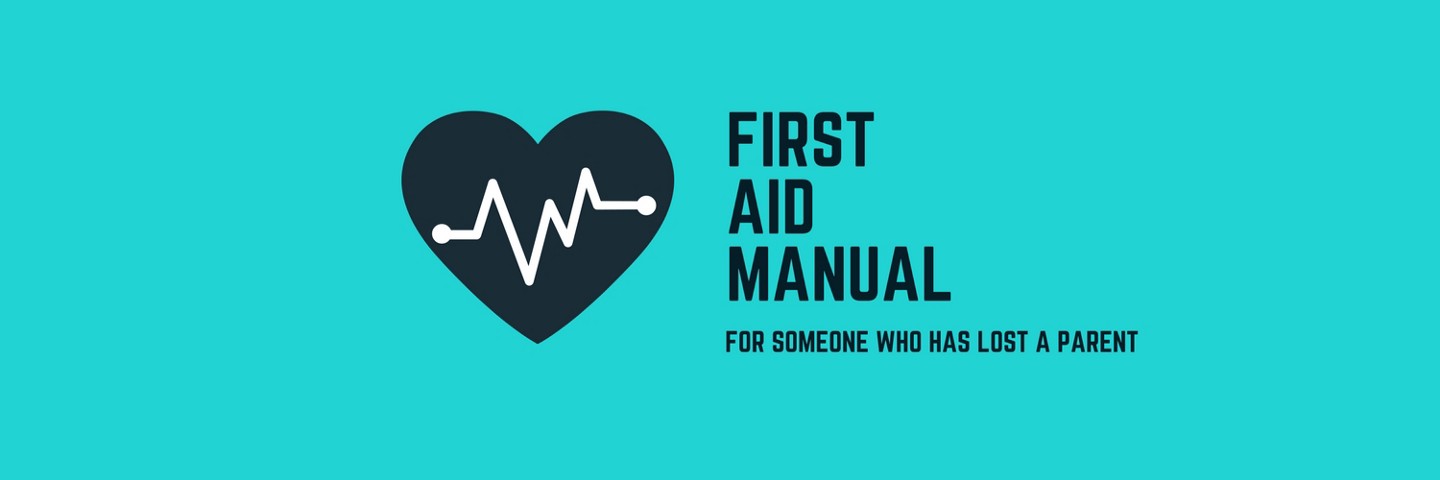
First Days Aid:
- Allow yourself to feel whatever you feel. Be it sadness, relief, guilt, or regret. Whatever. You have permission to feel. Embrace it. Let the emotions come rolling in. Roll with it. Don’t feel guilty if you don’t feel sadness yet. Shock and numbness are common first reactions. When my dad took his last breath, I was numb. Robotic. Empty. I could not process what had just happened.
- Let yourself cry when the reality hits. It will feel like a bad dream. When you wake up, allow yourself to feel the sorrow. The night I lost my mom to cancer, I was scared to go to sleep and wake up to a new reality without her. But I had to. The tears came like waterfalls the next morning.
- Notify your closest circle of loved ones. They will become your support system. Your care team. However, don’t make any social plans if you don’t feel like it. You’ll need a few days to process what just happened and be with your family and a select few.
- Take turns being strong for each other in the family. Now more than ever you need each other. Be there to comfort your widowed parent. They might seem to be doing ok, but underneath the facade they may be crumbling. My mom revealed to us years later after my dad passed that she suffered from depression. We had no idea. I wish I had known. Your siblings need your support too. And you need them. My brother became my rock during our time of grief and I would text him at all hours of the night. Like clockwork, he would be there to comfort me.
- Divide urgent tasks amongst family members. This includes calling the funeral home and notifying relatives. It can be too much for one person to handle physically, mentally or emotionally so share tasks.
First Week Aid:
- Treat yourself. Do some of your favorite things. Eat. Go for a hike. Your mom or dad would’ve wanted you to be happy. Don’t let one thing wash over everything. This means that you are allowed to have happy moments even amongst the sad ones. Don’t feel guilty abut indulging. Let your friends cheer you up! Within the first week that my dad passed, a bunch of my closest friends came over with large bags of Flaming Hot Cheetos. My favorite snack — yummm! I couldn’t stop eating them.
- Prepare for the funeral. Yes, it will be sad and difficult. But it’s also a time to remember the life of an amazing human. Write down what you might say at the funeral and gather photos to share. It might even bring your family joy as you look through old photo albums and tell stories. Also if your family wants to incorporate something non-traditional at the funeral, — DO IT. Forget about the norms. Do it their way. We played a video of my mom’s last opera performance at the funeral. Italian opera at the mortuary — Mama would’ve approved.
- Let your wider social circle know. Maybe this means you or a close friend sends an email out. Or maybe you want to post on social media about your loss. Different people have different styles, so do what is comfortable for you. I found it incredibly therapeutic to post on social media about my loss. The support was overwhelming and people who I hadn’t heard from in years reached out to share their personal experience or heartfelt empathy. Some told me they felt they knew my mom through my posts and cried with me when she died.
- Remind yourself that they live on in you. You are their legacy. They may have left this earth but they live on in your genes. They live on in the way they raised you. They will continue to see the world through your eyes. It’s a beautiful realization to know that they are still very much with you and within you. After we lost our mom, my brother and I trekked the Annapurna Circuit in Nepal in her honor. When we finally reached the highest mountain pass, we knew that she was right there with us, seeing the majesty of the Himalayas through our eyes.
First Month Aid:
- Accept that life has a new normal now. You will desperately want the power to go backwards in time. You can’t. You will think about “the way things used to be” when they were alive. You just lost a central pillar in your life. It’s natural. Adjusting will take much longer. However, now’s the time to recalibrate and accept a new normal. I coped by telling myself that I had to start a new chapter. I see life as a book. My parents were in many chapters but there’s still much left in the book. They will continue to remain in my heart as I turn the page.
- Know that it’s normal to self-isolate or feel bitter. You might just want to be by yourself. Grief can be a lonely experience as each individual’s pain is unique. As an extrovert, it felt weird for me to not want to talk to people, but hey that was my new normal at the time. I felt sometimes like I was on an island of my own, as no one could possibly understand how I felt (I thought). Other people’s social media posts became too much for me. How could someone post on Facebook about Kim Kardashian’s outfit?! Didn’t they know that I just lost the most important person in my life?!!! Who caaaares about celebrities? Lalala…island of my own.
- Do NOT compare the death of your parent to another death. This is a futile exercise. Death does not choose. There is no one “fairer” death than another. My mom died at the age of 68 which is so young, yet my grandma at 93. When it’s time to go it’s time to go. Also, some of us got the chance to say goodbye to our parent with terminal illness and some of us didn’t in a sudden accident. Each loss is different. Don’t compare them.
- Understand that grief is non-linear. You may have heard of the Five Stages of Grief. Some days you will feel totally fine, happy even. You might be out on a bright sunny day laughing with friends and then BAM! It hits you and knocks you to the floor. Sit with it for a moment. Breathe. Know that the sudden force of grief will pass. But know that it will also come back, maybe when a familiar scent fills the room so be ready for it. Triggers are everywhere but that means treasured memories are too.
- Find routine again. Do whatever you have to do to find a sense of normalcy again. If work makes you feel good, then work. It can give you a sense of purpose and a healthy distraction. After I lost my mom, I went back to my client work the next week. I wrote an email to my colleagues at a biotech company and reminded them that the work that we did mattered. We made cancer medicines. Medicine that could’ve saved my mom and so many others.
- Honor your parent’s life. Think of it as the celebration of a life rather than the mourning of a loss. Since we had a private funeral reserved for family only, my brother and I wanted to do something for my mom’s friends and our friends too. A month after my mom’s passing, we honored her life by renting out an entire gallery to exhibit her art. Over 100 people came to celebrate her extraordinary life. You can view our exhibition “Extraordinary Human” here.
- Read about the grief of others. You will know that you are not alone. My book recommendations are: “Option B” by Sheryl Sandberg & Adam Grant (which has a very active online community), “Wild” by Cheryl Strayed (or her articles online about grief), and “The Year of Magical Thinking” by Joan Didion.

We each deal with grief our own way, but I hope that you can find comfort in some of my advice.
There’s more advice I could give you, but now might be a good time to transition to advice for your support system. However, they may not know where to start so the below is for your friends who want to support you through this difficult time.
Part 2: What To Do If Your Friend Lost a Parent:
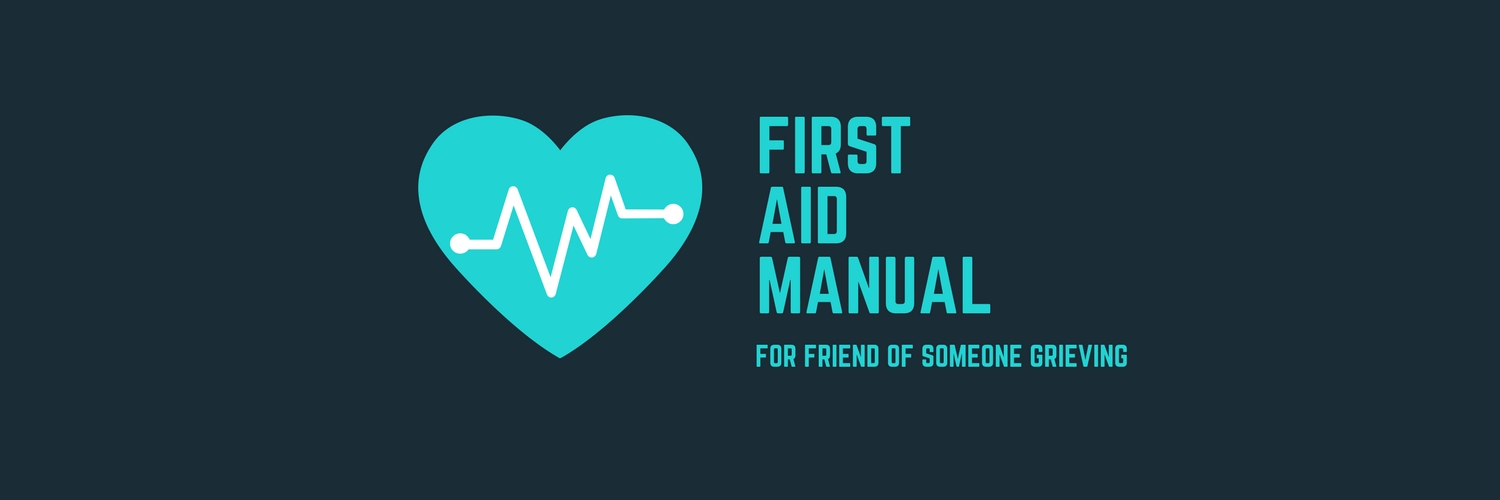
First Days Aid:
- Let your grieving friend know that you’ll be there. It might seem obvious but hearing the words means the world. When my parents were in the hospital my best friend told me, “I’ll be your support so that you can support your family right now. Let me help you.” Those soothing words were medicine to me.
- Ask them how they feel and just listen. Sometimes they just want to talk and have an outlet. Listen with compassion and intention. Hold loving space for them. If there are long periods of silence, sit. Be still. Be with them. Maybe they just want to know that another heartbeat is in the room or on the phone with them. Even if they’re just doing laundry, they’ll know that they don’t have to do it alone.
- Do NOT send flowers. Instead, send cards/messages/donations for funeral costs/cute cat pics. I can tell you very honestly that receiving flowers did not make me feel better because they die too! Vases and bouquets would arrive at my house with their sad drooping wilting petals and the last thing I wanted was more images of death. When colleagues sent me cards or friends sent me messages, I felt much better.
First Week Aid:
- Visit your grieving friend. Sometimes they don’t want to be alone and your silly shared inside jokes could be a great salve for their pain. Remind them that their parent lives on in them and share any memories that you have regarding their parent. I loved it when my friends recounted stories of my mom’s hilarious dating advice such as, “Don’t laugh too loud. Don’t get too tan. Be elegant and comb your hair, like Kate Middleton.”
- Offer the thing that you’re good at. Or whatever they love/need. If you’re a good cook then prepare meals for your friend. If you have excellent music taste, then make them a playlist. If they seem worn out, offer them a massage. Run errands for them. They might feel too ashamed to ask for help so just offer it. Even simple things can seem overwhelming for someone dealing with grief. For example, you could help pick up groceries or walk their dog.
- Get them out of the house. Get some fresh air. My childhood friend knows that I love to eat so she took me out to sushi at our favorite place the day after my mom died. It was great for my body, mind, and soul to leave the house and escape from my own isolated downward thought spiral.
- Let them process their own way and respect their cultural traditions.Withhold judgment on what you think they should feel or do. If you would act differently during loss, keep that to yourself as each person processes grief differently. Respect their cultural grieving traditions. For example, in America it’s more common to have an open public memorial and invite your friends, but in Chinese culture the funerals are reserved only for the people that knew the deceased.
First Month Aid:
- Continue to check in on your grieving friend. Lots of people reach out the first week, but having a consistent flow of support is key for your friend. Try a few times if needed. Try. Try again. Since the first week was so hectic, I could barely respond to messages. However, I felt so comforted as friends continued to reach out week after week to see how I was doing. One friend left me a three-minute voice message with a soothing prayer for me. I’m still in awe of that gesture til this day.
- Celebrate life with them. Take them out to something fun and uplifting. After I lost my mom, my best friend and her boyfriend cheered me up by inviting me to the red carpet premiere of HBO’s The Defiant Ones in Hollywood. I loved getting out of my drab sweatpants and getting dolled up. After the event, at night in our dresses and suits we celebrated my mom’s life by blasting “I’ll Be Missing You” in the car on max volume and dancing in the parking lot until the security guards chased after us. Together we celebrated life, just as my mom would’ve wanted.
- Do NOT come to them with petty life problems. This is not the time to complain about your Tinder date or how much you had to pay for a latte the other day. Your friend will likely kindly listen but please refrain from bringing petty problems or drama into the conversation. Most things will feel insignificant and trivial compared to their heavy loss. Also (and especially) refrain from complaining about your own parents because at least they are still alive.
- Do NOT take things personally. If your friend isn’t in a chatty mood or they’re not responding to you, please don’t take it personally. In fact, don’t take anything personally during this sensitive time. It’s not you; it’s the loss. Their entire life has been turned upside down and they are hurting. When we are grieving we are shells and shadows of ourselves. Please be patient with us as we slowly find ourselves again.
- Know that they appreciate you. If you’ve just read the above, you are a great friend and human. On behalf of all of us grievers out there, thank you for your love and support.
I hope that by sharing my experience, that we can create a safe space to talk about loss. Because even after loss, we can allow ourselves to feel, still find a new normal, and carry the lives of our parents on in us.
My fellow grievers: Hang in there. You’ve got this. You are loved. ❤
Mom and Dad: I miss you. I love you. I’ll carry you on in me. Always.
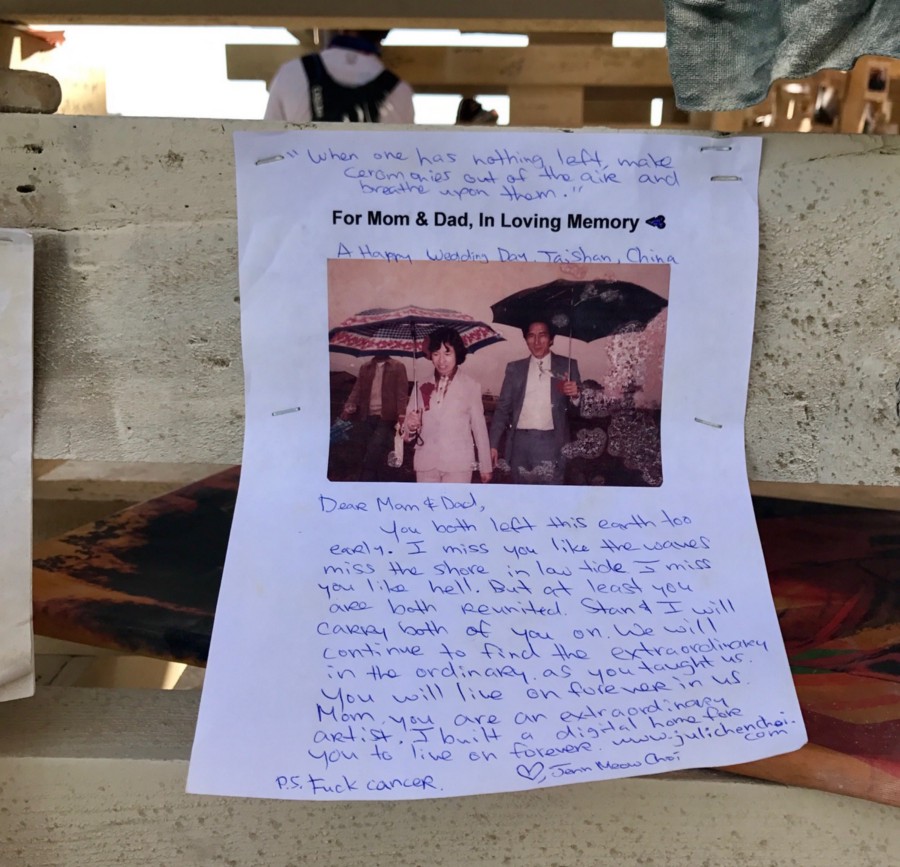
Please share this article if you believe that it could help someone you know. A fact of life is that we will all lose a parent one day, and will have friends who lose parents. No one has to grieve alone. Also, please comment if you have any advice to add. It would help us all greatly. Thank you. ❤
Originally published on Medium here.